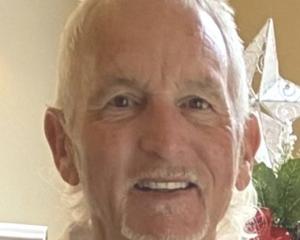
David Clark has spent two election campaigns calling for Dunedin Hospital to be rebuilt. Now the Dunedin North MP is Minister of Health and calling the shots on a $1.4 billion project in his own back yard. It is a responsibility he takes seriously, he tells health reporter Mike Houlahan.
David Clark has talked the talk, now he has to walk the walk.
Ever since he entered politics the Dunedin North MP has agitated for Dunedin Hospital to be rebuilt.
Now the Labour-led Government in which he is Minister of Health has signed off on a $1.4billion project to build a new Dunedin Hospital, and he has to shift gear from demanding action to being held to account.
"There is a sense of urgency, as there is service failure risk; there are inadequate facilities," Dr Clark said.
"The DHB is doing a fine job of managing in those circumstances, but that can’t go on forever.
"The counterpart to that is that you want to get it right. You can’t simply rush without due caution and without planning about what future service models might look like."
Now Dr Clark - who has said work on the rebuild would begin in Labour’s first term - has to live up to that promise, as well as other statements that the current level of service at Dunedin Hospital would be maintained.
And that’s just one of many hospitals he has to worry about.
Leaving aside Dunedin and the much-publicised issues at Middlemore Hospital, just south of Auckland, Dr Clark is about to oversee an eye-wateringly large amount of capital expenditure in the health sector.
"The best estimate we have from the Treasury so far is that it’s about $14 billion that has to be spent in the next 10 years.
"I’ve asked for a national asset management plan, because I think we need to understand the relative state of buildings around the country compared to each other.
"Currently, the best we have is each individual DHB assessing its assets and putting a bid in - so there’s no baseline assessment across the DHBs, no robust long-term projection of need so you could measure the relative priority of projects.
"The consequence of that has been what tends to be invested in is buildings that have fallen over rather than where further need can be projected into the future. That’s what happens in a constrained environment - you attend to only the most urgent, but there are other tasks to be done."
That said, there is little debate Dunedin Hospital has been triaged as a critical case requiring immediate surgery.
During the election campaign all parties now in government backed a rebuild of Dunedin Hospital, and yesterday’s announcement of a site comes six months after the formation of that government.
That’s probably adequate time for the making of such a momentous decision - although for those clinicians and patients enduring difficult conditions, a new building can’t come fast enough.
"There are lots of checks and balances," Dr Clark said.
"First and foremost, I don’t make the important decisions on Dunedin Hospital, the Cabinet does, and there are 20 people in that cabinet and I can tell you they don’t all come from Dunedin and they don’t all have a view that Dunedin should be the first place to get investment on every single thing.
"But we have a good robust process in Cabinet, which realises that Dunedin does need a new hospital, that Dunedin is the next cab off the rank, and that you shouldn’t have a hospital which is riddled with asbestos, where you can’t collect medical records, or where operating theatres leak when it rains - that’s just not OK."
Health is popularly regarded as a hospital pass of a portfolio - Dr Clark is fond of saying he didn’t have to crawl over bodies to get the role.
However, it has always been an area of interest: his mother is a GP, and Dr Clark studied health sciences at Otago - although he ended up with a doctorate in theology rather than becoming a doctor.
"People recognise it’s a really hard job: it’s hard in policy terms, it’s hard in political terms, and yet at the same time this is a time in history when there is an acceptance that there is a need for change in the system.
"I’m really excited about it, and it feels like the reason why I got in to politics."













